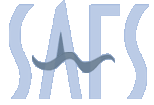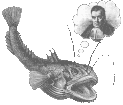UW Aquatic & Fishery Sciences Quantitative Seminar
Sandor Tóth
UW, SEFS
Optimal Sampling Design with No Bias and Minimal Spatial Autocorrelation
Abstract
Can we design an unbiased spatial sampling strategy that would minimize the expected variance on an estimated population mean subject to budgetary and logistical constraints, as well as concerns about spatial autocorrelation? In other words, can we design a sampling protocol with minimal spatial auto-correlation and with non-zero inclusion probabilities for each member of the population of interest across space while meeting hard constraints on infrastructural and budgetary reality? I will explore these questions in the context of an integrated ground- and air sampling effort for six carbon pools in remote boreal forests of Alaska. The goal is to minimize the expected variance on estimates of mean carbon tonnage in six forest pools by optimal flight path selections for remote sensing and by optimal vehicle routing for ground calibration. Perhaps for the first time, we study the relationship between spatial optimization and unbiased statistical sampling in an attempt to find ideal designs that are both viable on the ground, in the air and in the face of statistical theory.

